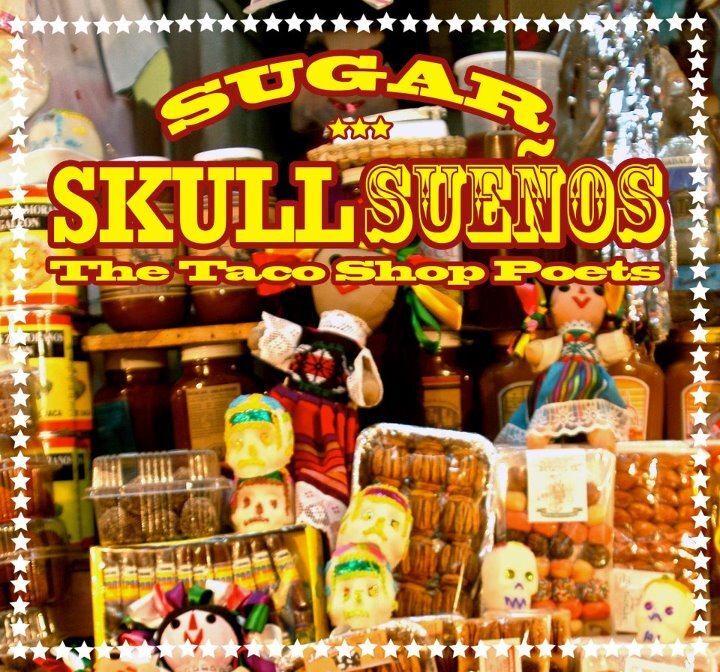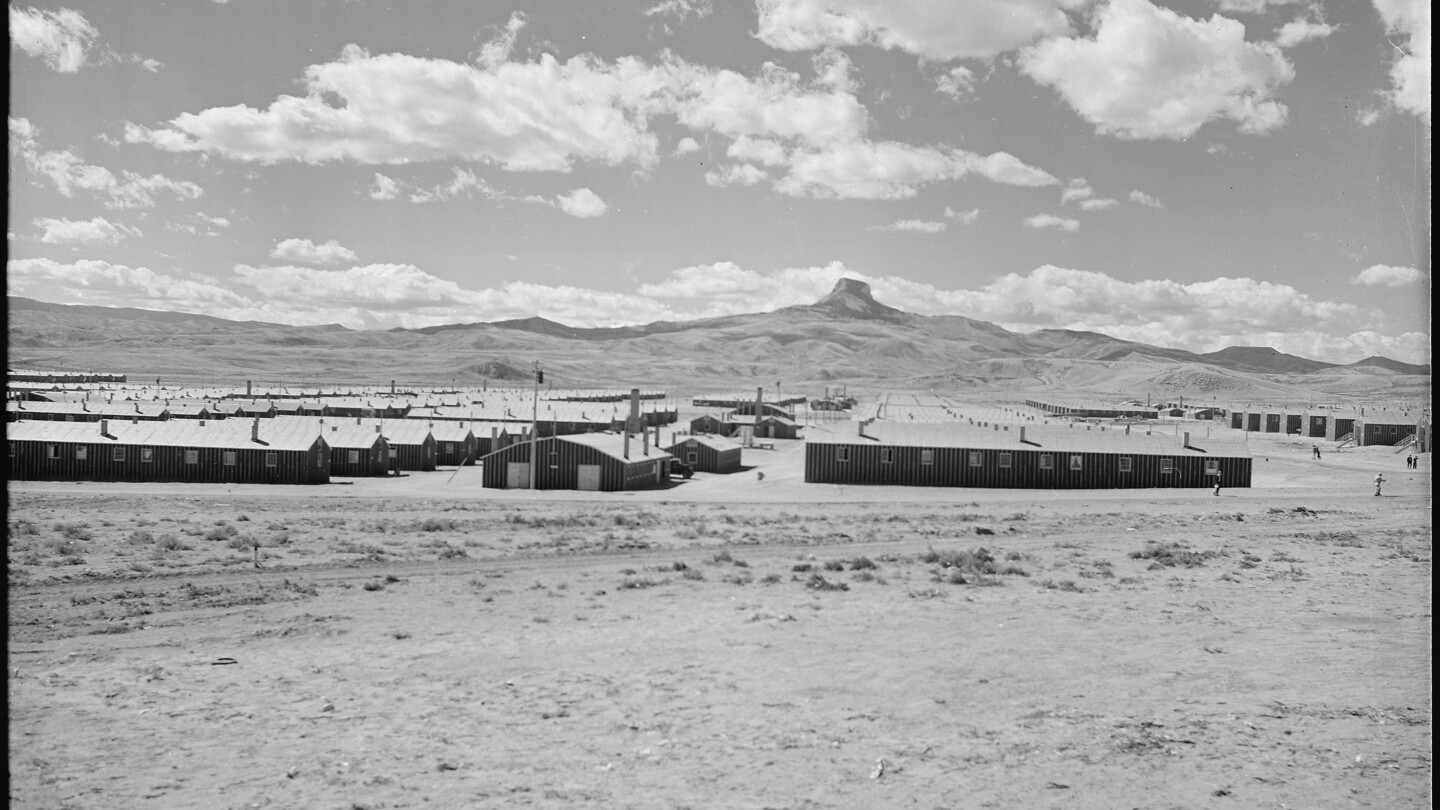Conversation with Taco Shop Poets Co-Founder Adolfo Guzman-Lopez

In 1994 Adolfo Guzman-Lopez co-founded the Taco Shop Poets, a multifaceted poetry collective based in San Diego. As the name suggests, the group is best known for performances in taco shops and other non-traditional poetry performance spaces, often focusing on Latino, Chicano and immigrant themes. The group released a compilation of selecting writings and album titled "Chorizo Tongue Fire" in 1999, then a second album "Intersections" in 2004. Additionally Taco Shop Poets has appeared in the documentary "Americano" by Carlos Fernando, founded the arts non-profit Voz Alta, and have read in cities across the nation.
Following a long hiatus that began after their last album, the group has recently reunited and released a chapbook to be presented this Saturday, May 26th as part of the La Palabra Series with Avenue Studio 50. We had a chance to talk to Adolfo about the reading and the history of the group.
What's going on this Saturday?
The four people who are going to read on Saturday are myself, Adrian Arancibia, Tomás Riley, and Luivette Rusto. Luivette is a local poet, organizer of various readings, and she teaches writing. She has not been involved with the Taco Shop Poets. The other three --Tomas, Adrian and myself -- we have been co-founders of the group mostly since the beginning.
The reading on Saturday is to commemorate the publishing of a our newest book of poetry, it's a chapbook called Sugar Skull Sueños. It came out about six months ago, late last year. So, we are reading to celebrate that.
How often do the Taco Shop Poets read these days?
We don't do all that many readings together anymore. Tomas lives in San Francisco, Adrian lives in San Diego, I live in Long Beach and work in L.A., one of the other co-founders of the group -- Miguel Angel Soria -- lives in San Diego. He couldn't make it to this reading.
Tell me how Taco Shop Poets got started.
I started the first series called the "Taco Shop Poetry Series" about a year after I graduated from college. I had seen a Puerto Rican poet in San Diego do a reading with some jazz musicians and I thought that was the coolest thing. That was the time when poetry jams and spoken word were new and people were starting to hear about them. When in San Diego, I setup a series of readings in August of 1994, four weekly readings at different taco shops -- three in San Diego and one in Tijuana -- and invited writers I knew, musicians I knew, performers I knew. It was pretty crazy and a lot of fun.
[In] the taco shop space, people go there to eat, (when there were jukeboxes there) listen to music, or pick up old newspapers. So, we recognized that the taco shop had culture. It was a cultural space with music and literature where people gather and we wanted to combine that with the poetry space where people can get involved with spoken word, and from there it took off.
Luckily I had a part time job, so I could leave for long weekends. We read in San Francisco, Texas, we went to New York a couple of times and read at the Nuyorican Poets Cafe. We had a guerrilla reading at the Alamo and we promptly found out the the Alamo was guarded by the Alamo Rangers who were armed with guns -- big guns. So we took the reading across the street.
How did you meet the other founders?
Adrian Arancibia, I met him at UCSD and we read poetry a few times before Taco Shop Poetry. Tomas Riley was a friend of Adrian, so he came on board that way. Miguel was involved in the Chicano student activist movement in San Diego, so I'd known him from those circles, because while I was at UCSD, I was also one of the editors for the Chicano newspaper on campus. So the four years of the group it was a big collective, and after that it became unwieldy, so we decided to become a core group with four poets and two musicians. We have two CDs out and those are reflections of the core group.
Can you describe the dynamic of the group and how you guys worked together? Also, what was the social and political climate like in '94?
Adrián Arancibia's family is from Chile -- he was born in Chile -- and his family was exiled after the coup by General Augusto Pinochet Ugarte. He arrived in the Mid-West then moved to San Diego, so all of those things are very present in his writing. Miguel-Angel Soria grew up in Tijuana going back and forth constantly between San Diego and Tijuana. The bilingual element is very strong with him in his writing. He plays around most with English and Spanish more than all of us. Tomas Riley, I don't know his ethnic background, he's partly Filipino, part Latino in some way or another. He's the one with deepest roots in this country and he has the strongest hip-hop sensibility of all of us, so that is very strong in his work. And I was born in Mexico City, grew up Tijuana and San Diego, so each of us carved out a slice of the things we would observe.
Adrián Arancibia wrote a poem about O.J. Simpson's trial and about how it was a hi-tech lynching of sorts. He had a great poem about the madness surrounding the trial and the media circus.
In the time -- '96 -- when Prop 227 went to the ballot box it basically outlawed bilingual education in California, which every education research will tell you that when somebody comes to the United States and they don't know English, you have to keep teaching them in their native language and gradually transition them into English. Prop 227 basically did away with that and said, "hey you got to learn English in one year and that's it." So, it was an attack on bilingualism -- in California!
Tomas wrote about the shootings of an African American high school athlete in San Diego at time. Tomas has a great poem about John Coltrane. I wrote a great deal about gentrification that I found in San Diego -- the redevelopment of Downtown San Diego.
The group grew pretty big, to 30 people right? Can you describe the makeup of the group and the kind of subjects the poets explored?
I don't know if it grew to 30 people, but it was definitely a group of a dozen people, ranging in age from 16 to the oldest who was in his 40s, and mostly Mexican American but of different persuasion, some immigrants, some whose grandparents were immigrants who did speak Spanish. Most of us wrote about the border, the militarization of the borders, and the changing technology. Internet and email at the time was new; people were just starting to use it.
What could an audience expect at an early Taco Shop Poets reading?
Usually we would have a collective piece that began the reading and for that collective piece every member who was reading at the time contributed something to it. It was like a round robin style where each member would read a line or deliver a line of poetry and always accompanied by some kind of music, usually bass or percussion. So we would do that collective piece in the beginning then each poet would read two or three pieces and take turns and we would finish up sometimes with a collective poem.
What was the response from the community?
A couple of people were freaked out and didn't know what was going on. We were on the San Diego trolley once and I remember an immigrant lady, she put her fingers in her ears.
In Tijuana, when we read there the reaction was very positive, because Tijuana, in the traditional Mexican way, the poetry is always something very serious, behind a table or behind a podium. And so the taco shop we read at in Tijuana was an open air taco shop. It was a place where you stand up and order. I can still hear the big knife coming down on the wood block, cutting meat the whole evening. That was kind of the percussion of that Taco Shop reading.
Did you create new poetry fans from these performances?
It's hard to say whether we converted anybody to poetry. There's one reading we did at Market Street in San Diego. At the time, it was a different part of downtown, almost a skid row area. We're at the mic and it was in the parking lot, it was one of these taco shops where you just walk up, order, there were tables around outside. We left the mic open and this African American guy -- I don't know if he was homeless, out of rehab or what --he got up on the mic and started to speak in tongues .
What caused the disbanding back in 2004?
It was before then. The significant break -- if you can call it that -- happened more or less in '97/'98 where it was becoming too much to organize these readings as this large collective. There were people who would just show up. So we decided that it was just the four of us who were committed to it. We kept reading on a regular basis until 2000, then I left. They kept reading for a year or two and then it petered off. Our last collective reading as that group was in 2004 and then each of us went our separate ways.
How did the group get back together?
After 3 years, members published a couple of books, we put aside our differences and we started to reflect back on what we had done and what we were writing was still relevant.
How did you get involved with Avenue 50 Studio?
The connection was with Kathy Gallegos at Avenue 50 Studio. In San Diego I was involved in different cultural organizations. I got a job at the Chicano Cultural Center there that had been around since the 70s and also an independent space called El Campo Ruse, which was a little bit of everything. We had poetry readings there, jazz performances, visual arts, and art exhibits. So when I came to L.A., I was looking for art spaces. I was literally driving through the neighborhoods and saw Avenue 50 Studios opening and Kathy was putting up stuff. It looked like the Centro Cultural and the Campo Ruse so I thought "this is promising."
It's a community art space. So, I've known Kathy for a while, I read a couple times there, and when the opportunity came to have an L.A. reading for this book I reached out to Kathy, and she said, "oh we have been organizing the Poseia Para la Gente Series and we're trying to take poetry to different places." We both agreed that this is a perfect match.
Event Details
May 26, 2012 5:30 PM - 7PM
Taqueria My Taco
6300 York Boulevard #4
Highland Park, CA 90042
(space is limited, please arrive early)
Don't miss Adolfo Guzman-Lopez's column Movie Miento on KCET.org.
For more Taco Shop Poets see the videos below, including a 2007 mini-documentary on the collective and a 2011 reunion performance by Guzman-Lopez:


